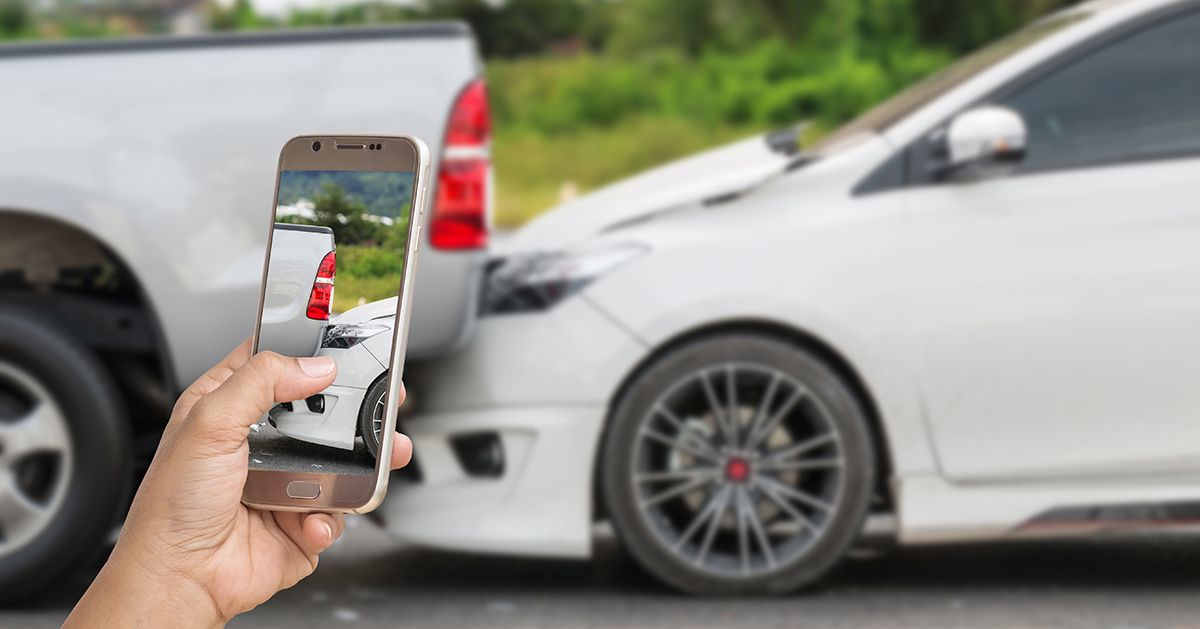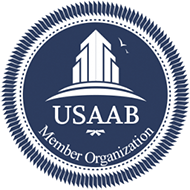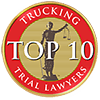
The Importance of Photographic Evidence in a West Virginia Auto Injury Claim
In the event that the unthinkable happens and you are involved in a car accident, your smartphone will be of paramount importance.
In the immediate aftermath of an auto accident, you can use your smartphone to:
- Call 911 for medical emergencies
- Report the accident to the police
- Notify your auto insurance carrier of the accident
- Call a car accident lawyer
- Make notes about the circumstances, any eyewitness contact info, etc.
- Take photographs at the scene of the crash
Photographs are one of the best ways to preserve evidence of the crash and support your claim. They can be helpful in the weeks and months ahead as you fight to get the money you deserve from the insurance companies.
There’s a lot to know about car crash photos — why they matter, how to take them, when not to take them, and so on. We cover the basics below.
The Importance of Car Accident Photos
The first thing you need to understand about auto accident claims is that, as a general rule, insurance companies will work very hard to pay you as little as possible.
Insurance adjustors will grasp at any available straw to dispute your allegations, challenge your medical evaluations, reduce your payout, or push the blame back on you. Many times, they will attempt to construct their own narrative about how the accident “really” happened. Or they might suggest that your damages weren’t caused by the crash.
Photographs can stop those “dodge and deny” maneuvers in their tracks. As the old adages go, a picture is worth a thousand words — and cameras do not lie.
Other benefits of taking pictures after the accident include:
- Helping your Morgantown car accident attorney investigate your accident and prepare your claim
- Helping doctors and medical witnesses understand exactly what happened in the moment of the crash
- Documenting other potential sources of evidence (for example, nearby security cameras or eyewitnesses)
- Combatting the “memory fog” that can sometimes happen after a crash
- Preserving the evidence (because your vehicle can be repaired and your body can heal, but pictures won’t change)
- Making the case in court, if it comes to that (photographs can be extremely persuasive to juries)
How to Take Car Accident Photos
You might be surprised by just how confusing the moments after a car crash can be. Even when uninjured, most people find themselves in a daze. Your body will flood with adrenaline, and “common sense” can seem to vanish.
It’s for this reason that many people forget what to do right after a crash — and then forget important details about the accident later.
Accordingly, it’s a good idea to spend some time now thinking about how to take car accident pictures. The more you’ve rehearsed the scenario in your mind, the more prepared you’ll be if the moment ever comes.
What to Photograph After a Car Accident
You might want to store this list in a note on your smartphone. That way, you’ll have it handy when you need it:
- Vehicle damage
- Injuries
- People (drivers, passengers, police officers, witnesses)
- Info (license plates, insurance cards, driver’s licenses, and registrations)
- Skid marks
- Tires (close-up pictures)
- Debris, shattered glass, or foreign objects in the road
- General pictures of the road condition, weather, and the overall accident scene
- Any nearby traffic lights & traffic signs
- Traffic cameras or security cameras (your WV auto accident lawyer may be able to access those cameras’ recordings later)
- Damage to any buildings, street signs, guard rails, or other property
Tips for Taking Useful Car Crash Photos
The quality of your pictures will matter. Remember: now is your only chance to take photographs at the scene.
- Take more pictures than you think you need. As many as you can.
- Make sure your photos record the date & time of each photo. Most smartphones do this automatically (as long as your clock & calendar settings are accurate).
- Get a mixture of close-ups and wide angles.
- Take photos from as many angles as possible. The more details, the better.
- At nighttime, use flash for close-up photos, but turn flash off for far-away pictures.
- Photograph the inside and outside of your car.
- You are allowed to take pictures of the whole scene. However, get permission before taking close-ups of another person’s injuries, their identifying documents, or the interior of their vehicle.
- Make at least two backups of your photos as early as possible.
What If I Cannot Take Pictures at the Accident Scene Because I Am Injured?
Never put yourself in harm’s way for the sake of a photograph, and always obey a police officer / emergency responder’s instructions. Photographs are important, but your safety matters even more.
Furthermore, if you or anyone else needs emergency attention, make that your priority.
If you aren’t able to take photos at the scene because of a severe injury, try to get an uninjured passenger to take pictures for you.
Driving alone? Maybe an eyewitness can help. Alternatively, call a friend or family member who lives nearby and ask if they can come to the scene and take photographs as soon as possible.
My Car Accident Already Happened, But I Didn’t Take Photos. Do I Still Have a Case?
While photographs are valuable in a car accident claim, please don’t make the mistake of thinking your case is hopeless without them.
The law in West Virginia does not require accident victims to take photographs, so the fact that you don’t have them will not change your rights at all.
While we always strongly encourage motorists to take pictures extensively, there is still a lot we can do to mount a compelling case on our clients’ behalf without photos, if necessary.
Every claim is different, so you should talk to a car accident attorney about your situation as soon as possible.
The insurance company is likely to pressure you to accept a settlement offer, but such offers are often for much less than the victim deserves. Talk to a lawyer before you sign anything. Understand your rights, then decide.
Free Consultation with a West Virginia Auto Injury Lawyer at Colombo Law
If you or someone you know has been injured in an auto accident in West Virginia, we want to help.
Colombo Law is dedicated to fighting for injury victims in the face of a complex and challenging claims process. We bring years of experience to the table, and we are proud to have a 99% success rate with personal injury claims.
In the majority of our cases, we have even been able to negotiate favorable settlements without going to trial, getting our clients more money than the insurer was willing to offer before we got involved. The insurance companies know who we are, and they know we’re willing to do what it takes to get our robust justice.
We fight to maximize compensation. Let us fight for you. Colombo Law proudly serves victims across the whole state of West Virginia, including: Bridgeport, Buckhannon, Clarksburg, Elkins, Fairmont, Morgantown, Parkersburg, and Weston.
Here’s our promise to you:
- A free case evaluation with absolutely no obligation to hire us
- Honest guidance and advice
- No attorney fees unless and until we recover damages for you
- Our time, passion, respect, and attention to your needs
A strict legal time limit (i.e. statute of limitation) applies to WV car crash injury claims, so please don’t delay. Contact Colombo Law and schedule a free case review right away. Just dial 888-860-1414 (304-599-4229 in Morgantown) or contact us online.










